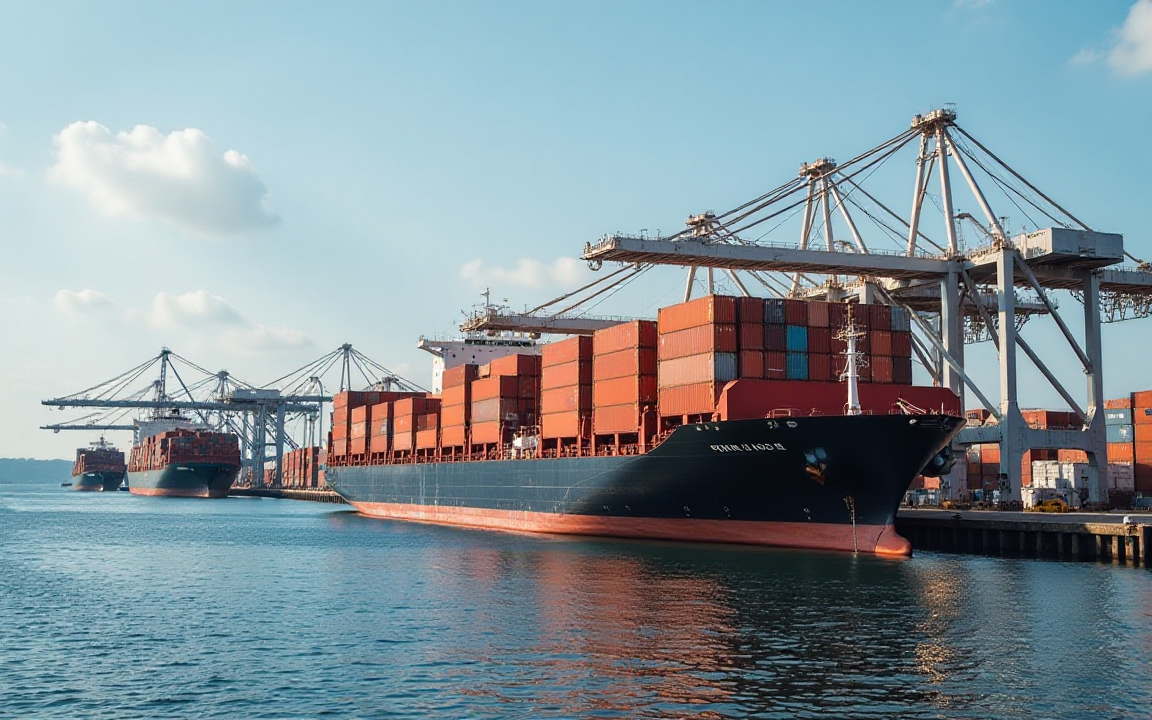Indian exporters, particularly in the textile, gems, and marine product sectors, are grappling with significant challenges following the implementation of new 50% tariffs by the US.
This substantial increase has immediately placed them at a “significant relative disadvantage” compared to competitors from other nations, according to ESSEC Business School Associate Professor Dr. Srividya Jandhyala, author of ‘The Great Disruption: How Geopolitics is Changing Companies, Managers, and Work’.
Srividya specialises in global strategy, geopolitics, international business, and non-market strategy, with an emphasis on the international landscape.
She instructs students on strategy, international business, and geopolitics at ESSEC, spanning undergraduate, master’s, and executive education programs.
The apprehension surrounding these higher tariffs has already had a palpable effect, with reports indicating that “even the expectation of higher tariffs has led to orders being put on hold or cancelled,” Jandhyala told Invezz on Wednesday.
Competitiveness challenged
For many exporters, whose operations are characterised by “relatively small margins,” competing effectively at this escalated tariff rate may prove untenable.
According to Jandhyala, the core issue for Indian exporters isn’t merely the “headline tariff rate of 50%,” but rather the crucial fact that “it is higher than what competitors based in countries like China, Vietnam, or Ecuador face.”
This disparity fundamentally alters the competitive landscape.
“This means whether Indian companies will find a market in the US depends less on product quality, features, innovativeness, or value but more on where the product is coming from,” Jandhyala said.
While Indian exporters could invest in “products, improve their quality, or strive to be more efficient,” she notes that “it is much harder to change where you are from.”
Conversely, she highlights that “the relative success of say Vietnamese exporters will stem from their nationality, not just their product quality.”
This underscores a profound shift where geopolitical factors are increasingly dictating market access and success, sometimes even overshadowing product attributes.
Shifting markets and unexpected benefits
A direct consequence of these new trade barriers is that Indian exporters will seek out more advantageous alternative markets in Europe, Asia, Latin America, and the Middle East, according to Jandhyala.
They may also turn to domestic markets.
This strategic pivot towards diversification is a direct consequence of the reduced viability of the US market.
This shift could result in an “unexpected side effect”: domestic consumers might gain access to superior quality products previously reserved almost exclusively for export, she said.
While this could be a positive outcome for Indian consumers, exporters will face the daunting task of offsetting lost US orders.
Jandhyala added:
But if successful, de-risking of export dependencies could be beneficial.
Uncertainty looms over global trade
Looking ahead, the long-term trajectory of global trade remains shrouded in uncertainty. India serves as a potent example of this volatility.
“A few months ago, Indian companies’ nationality gave them a relative advantage over their Chinese competitors,” Jandhyala noted.
“Today, the tables seem to be turned,” she pointed out.
This rapid reversal in fortunes raises critical questions for businesses globally.
The current environment presents a significant dilemma for companies considering future investments.
Jandhyala added:
How might companies continue to make long term investments in supply chains, innovation centers, marketing teams, or manufacturing when they are unsure about what the future will bring?
This pervasive uncertainty regarding geopolitical shifts and trade policies creates a challenging environment for strategic planning and long-term growth, demanding adaptability and foresight from businesses navigating an increasingly complex global economy.
The post Trump tariffs put Indian gems, textile exporters at ‘significant disadvantage’ says ESSEC Professor Srividya Jandhyala appeared first on Invezz
